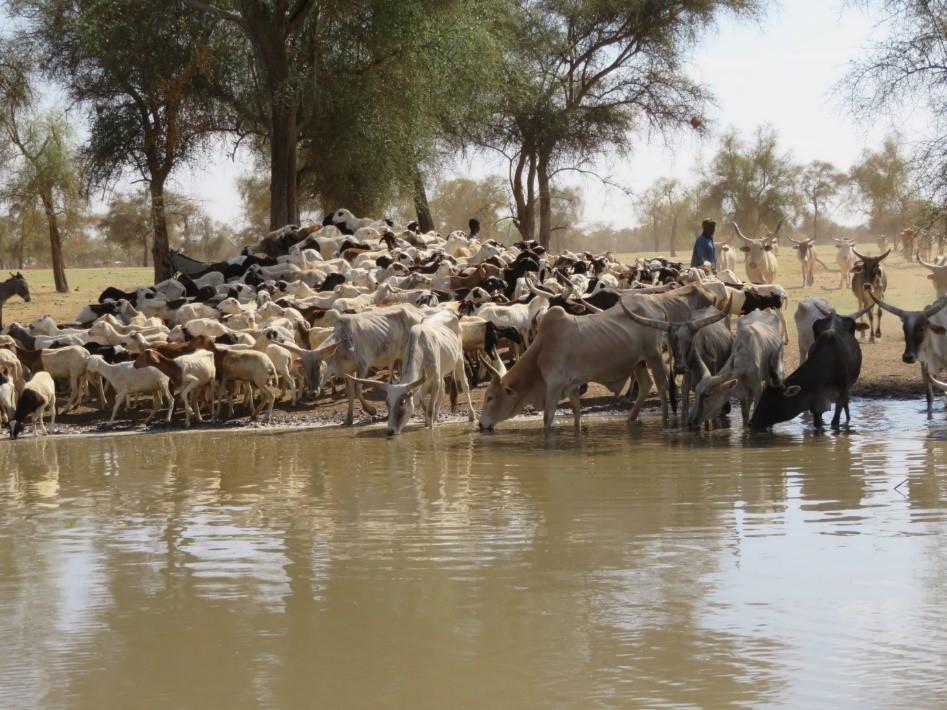- Home
- Worldwide
- CIRAD worldwide
- Projects
- CaSSECS project
Carbon sequestration and greenhouse gas emissions in (agro) Silvopastoral ECosystems in the Sahelian States - CaSSECS

Herd of zebus and sheep drinking from a temporary pond in northern Senegal, at the start of the rainy season © S. Taugourdeau, CIRAD
Issues
(Agro)pastoral livestock production systems in the Sahel are often seen as significant greenhouse gas (GHG) emitters, and are not well regarded by politicians. In particular, this negative image can be put down to a lack of the reliable data, references and scientific and technical expertise required to analyse GHG emissions. The carbon sequestration potential of farmed ecosystems is not sufficiently taken into account, preventing a clear vision of farms' carbon footprints. The project therefore aims to increase recognition of the environmental, economic and social role played by Sahelian livestock farms in the region's development.
Description
Following an initial diagnosis of farmers' practices, GHG emissions linked to livestock, and the contribution of soils and vegetation to carbon sequestration, good livestock production system management practices are being built jointly with farmers (improved livestock rations, sustainable natural resource management). Simple, affordable tools for calculating carbon footprints will be disseminated to a large number of stakeholders in Sahelian livestock production chains. They will serve to build efficient information systems on a national level (mapping ecosystem characteristics and dynamics, assessing agro-pastoral farm rations and carbon footprints). Through training and skill-building operations on several levels (farmers, livestock producers, mappers, the authorities), the project will foster institutional dialogue and advocacy surrounding issues linking livestock production and climate
Expected impacts
- (Agro)pastoral farmers will be able to make a living from their practices and adapt to climate change, while helping to reduce the climate effects of livestock production.
- National organizations in the CILSS (Permanent Interstate Committee for Drought Control in the Sahel) States will be able to understand, build and update the data repositories required to boost the recognition of (agro)pastoral livestock production systems on a national and international level.
Associate partners
APESS, CNRS, Direction élevage du Ministère élevage (Senegal), FAO, INRAE, RECOPA, University of Lund, University of Toulouse
























